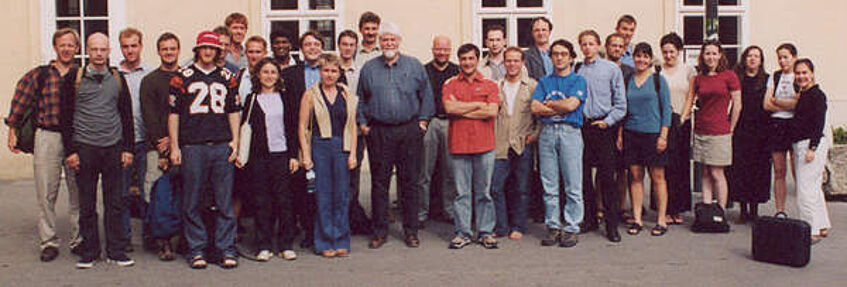USS-SWC 2002 – Mind and Computation
The 2nd Vienna Summer University was held on 15–26 July 2002.
Lecturers
- Güven Güzeldere (Duke University, USA)
- Michael Hagner (Max Planck Institute for the History of Science, Berlin, Germany)
- Brian McLaughlin (Rutgers University, New Brunswick, USA)
- Paul Ziche (Bayrische Akademie der Wissenschaften)
- Guest Lecturer: Anton Zeilinger (University of Vienna, Austria)
Since the nineteenth century, experimental, clinical and anatomical studies of the brain have vastly determined the brain as an organ, in which various psychological qualities are located in different regions. This has resulted in a cerebral topography of man that seeks to decipher man beyond the mind-matter dualism. Thought in itself, perceptions and language, previously issues of philosophy, have now become an object of the life sciences. At the same time, however, models of cognition based on the language of thought have become crucial for the philosophy of mind.
Around the middle of the twentieth century, the brain became conceptualized as a computer, and this led to numerous fruitful research enterprises. More recently, however, the equation between brain and computer has been challenged. One aim of this Summer University was to discuss various shifts in the relation between mind, brain and computation from historical and epistemological points of view. Moreover, the Summer University has focused on the relation between physiological and mental processes, for example the relation between low-level vision accounts of color perception and their interaction with theories of visual consciousness.
Topics
- Theoretical unification in physical science
- Vitalism, materialism, and reductionism in biology
- Relativity, complementarity, and underdetermination: Metaphors of multiplicity in twentieth-century science and philosophy
- The Unity of Science movement and the Vienna Circle
- The organization of scientific research
- Realism, reduction, simplicity, and explanation: Methodological perspectives on unification
